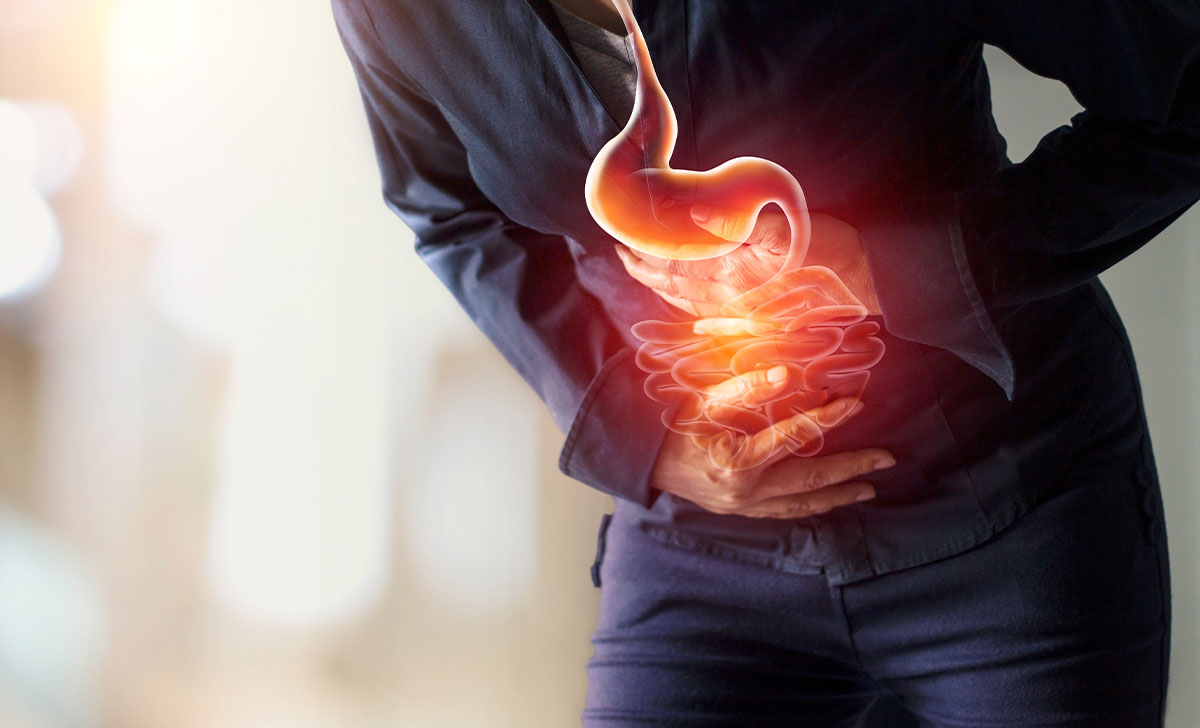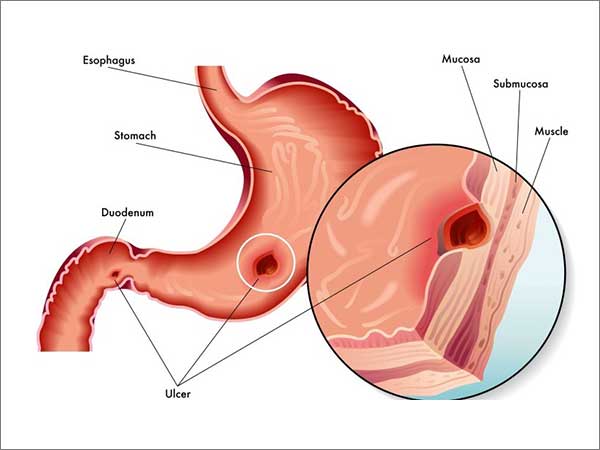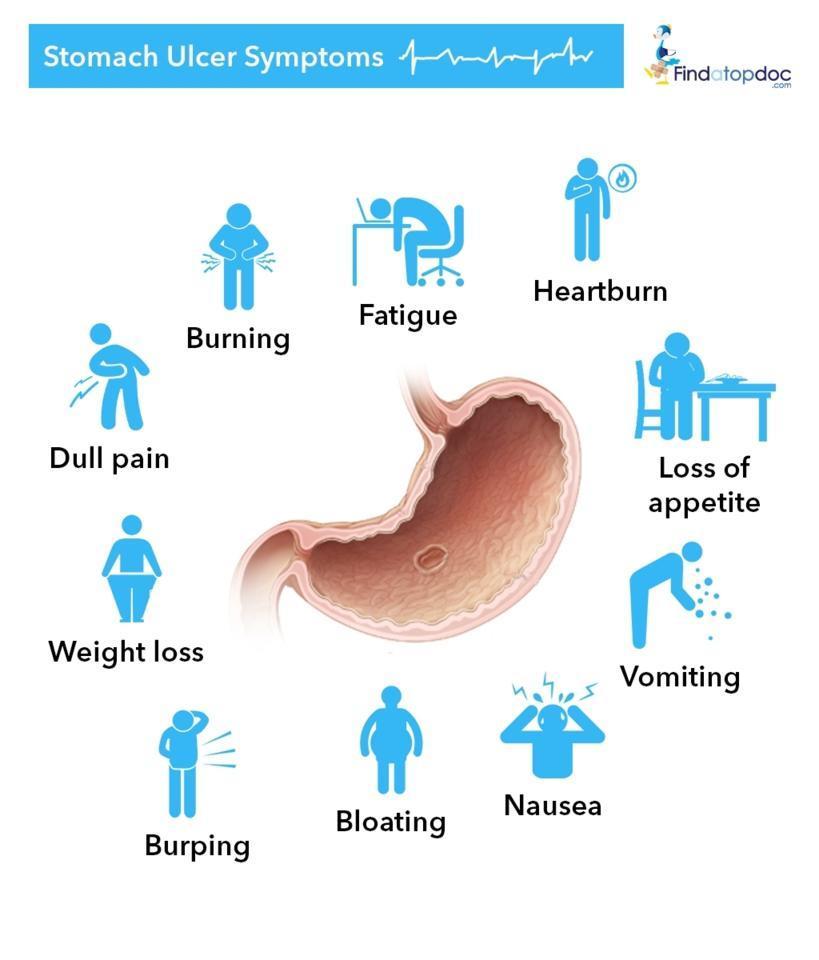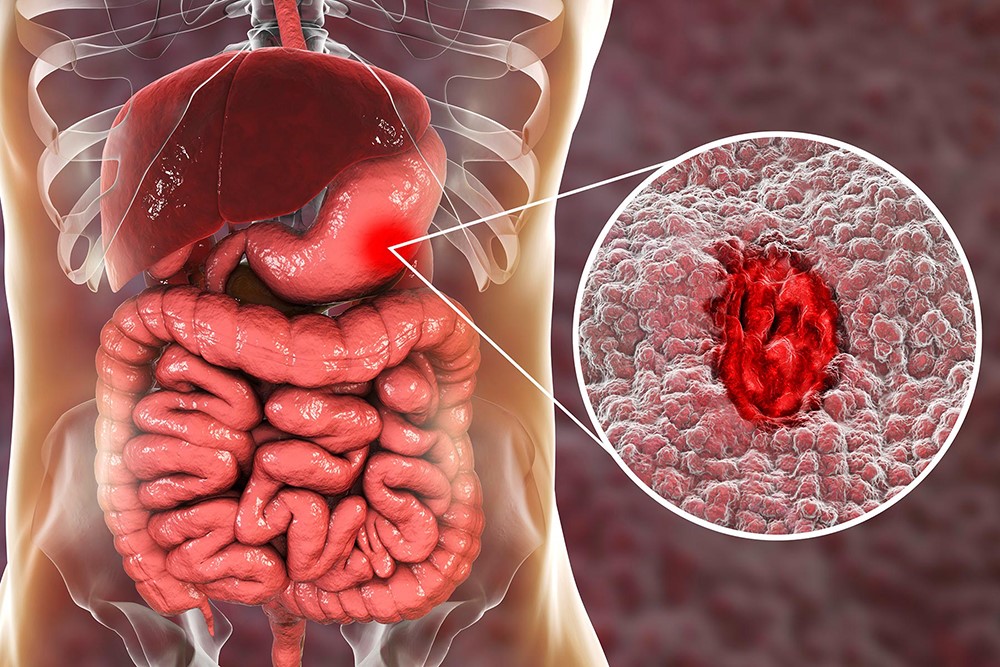
You may be wondering what this condition is about or what actually causes this or probably, what exactly happens to the body when someone get Peptic Ulcer? Well...you need not to worry, that is why I'm here today.
Apparently, Peptic Ulcer Disease is a disease of the gatrointestinal tract where a person develops a sore or injury, what is usually termed as an ulcer, along the gastrointestinal tract. Basically, there are two types of PUD which is classified based on the site with which the sore is usually found. These include;
✓ Oesophageal Ulcer(rare, found in the oesophagus).
✓ Gastric Ulcer(found in the stomach).
✓Duodenal Ulcer(found in the duodenum).

Each of these ulcers comes with similar signs and symptoms e.g fatigue, nausea, anaemia, vomiting, heartburns, loss of appetite and weight loss in gastric ulcer patients, increase in appetite and weight gain in duodenal ulcer patients,abdominal pain and etc.
🛑🛑NOTE🛑🛑 One major way to distinguish between the two main types of Peptic Ulcer is when the pain occurs. Gastric ulcer pain usually occurs immediately when the person eats or when food enters the stomach whiles Duodenal ulcer pain occurs minutes to an hour after eating. With duodenal ulcers, the food tends to relieve their pain so they eat a lot but with the gastric ulcer, pain worsens with food.

These three conditions collectively known as Peptic Ulcer Disease are usually caused by infection by Herlicobactor Pylori, smoking, intake of alcohole, prolong starvation, excess intake of spicy foods, prolong and excess intake of pain medications(NSAIDs) which hinders the production of the mucous needed to line the stomach and duodenal surface layer, and among others.

Once you've been diagnose of Peptic Ulcer, it cannot be cured because there's no cure to it. If you're lucky enough to have an early diagnosis and a small sore size, it can heal but if not, the affected person will be left with no choice but to embark on a lifetime management.
Various managements include, ensuring appropriate eating habit and following the medication regime in order to avoid the reoccurrence of the radiating pain.
Abstainance from smoking, alcohole, and sedentary lifestyle is best to begin with if that is the cause. Every individual must avoid the misuse of pain medications, starvation and stress since all these exposes the stomach lining to the continuous release of the hydrochloric acid produced by the cells of the stomach purposely for digestion.
"Prevention they say,is better than cure." Let's all try our best to live a healthy life and avoid too much stress. Now that you know about PUD, thus if you didn't ken, make sure to apply the gained knowledge.
WHAT AT ALL IS THE ESSENCE OF KNOWLEDGE WHEN NOT APPLIED?
Thanks for taking your time to read, see you in my next post😉😘
written by your favourite newbie- osinda😉
Thank you for this expository post. Quite informative.
You can also check #medhive community.
Also, it'll be good to add some references even when the information is from experience.
Thank you for sharing
Well noted...I'll check it out. Thanks for reading😉
You're welcome
Good post.
I quite enjoyed it until I saw the words that it can't be cured. As a Pharmacist I know many people who had peptic ulcers and are now ulcer free.
The way I describe it to people is that a peptic ulcer is very similar to a cut/wound on your skin. On the skin it will develop a scab then slowly heal over. However, if you pick at the scab or continue to irritate the skin then the wound will never heal.
In your stomach there is acid in there every minute of every day. That acid is corrosive and as long as it is there that poor wound will never have a chance to heal.
However, if you get rid of the acid the stomach most certainly can heal. Proton pump inhibitors (PPI) like Omeprazole, Rabeprazole, Esomeprazole, Lansoprazole, Dexlansoprazole and others can all reduce acid for 90% or so allowing the stomach to heal. Other medications such as H2 blockers (ranitidine, famotidine, cimetidine and others) can also be used although they reduce acid less and are overall less effective to allow the peptic ulcer to heal.
Another thing that I would take issue with is that stomach acid is used to digest the food. That is only partially true. I have so many people are worried about their stomach acid medication because they think it will cause poor nutrition from bad digestion. Stomach acid and pepsin are responsible for some protein digestion. Maybe 5% of it. However, it is the pancreatic enzymes (trypsin, chymotrypsin and others) that the pancreas releases into the intestine that do the majority of the digestion.
But I still don't recommend long term PPI use for two reasons: (1) Acid kills bacteria and you are less likely to get sick from your food or from improper handwashing with the acid as a first line of defense. (2) Acid mobilizes metals and is very helpful for absorption of iron, calcium, and magnesium. Short term use of PPI's is no problem but long term I'd watch things like iron and check for signs of anemia.
Last note. If you are overweight peptic ulcers could be a problem. Too much fat isn't good for the stomach. Increase weight also puts pressure on the stomach and can the internal sphincters causing acid reflux (GERD) and over time that can be a factor in peptic ulcers also.
Overall though I really enjoyed your article.
Thank you.